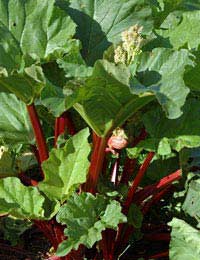What You Should Know About Poisonous Plant Allergies

Most plants are good for us either medicinally, nutritionally or even simply because we enjoy looking at them. There are some however that are dangerous either because they are poisonous, cause allergy or both and these must be identified in order to prevent a serious reaction from developing.
Plant Allergies
Plant allergies are fairly common with the most frequently seen allergy resulting from exposure to high pollen levels. There are however some very serious plant and foods allergies such as that of the peanut which can become potentially fatal very quickly if appropriate treatment is not given.It is always advised that a certain level of knowledge about any food allergies is gained as awareness is very important in both identifying, preventing and treating allergic reactions and may one day save someone’s life.
Poisonous Plants
The types of poisonous plants that are likely to be seen in the UK can include plant matter such as some fungi which may appear to be harmless mushrooms when in fact they can be very dangerous to health, rhubarb if the leaves are eaten or if large amounts are eaten raw, poppies, foxglove and even some houseplants such as the split-leaf philodendron, though the full list of possible poisonous plants is much longer.It is possible for other species to grow in the UK as they may be brought over from other countries or certain species cross-bred with other which can produce new and more deadly types of plants.
Types Of Reaction
Types of reactions from poisonous plants can range from a small irritation to the airway, a skin reaction such as a rash or blistering or may be far more serious and the airway can swell and become obstructed.For some an allergy or reaction may not arise unless the plant is ingested in which case it is often necessary to seek medical advice if symptoms persist for longer than 48 hours as dehydration may be a risk factor.
Always remember that pets may be at risk too and as they are often outside are especially at risk of eating plants that may harm them.
What To Do In The Event of a Reaction
As everyone may react differently there is often no way of knowing if the reaction is caused by a poisonous plant or by something else but as the reaction can vary from as little as a minor skin irritation to an anaphylactic reaction in which the person’s life may be in danger, basic first aid may be needed to save life.If possible try and identify what plant has caused their reaction and isolate it from the person.The first issue to address is whether the person is still able to breathe satisfactorily. If their airway is obstructed or appears to be swelling it is essential that you seek immediate attention.It may be that the person has developed a bad rash that is spreading to the rest of their body in which case keep their skin cool and try not to allow them to itch the affected areas. If needed, wrap them in a cool damp sheet until the applicable creams and medicines can be given.
If blisters develop do not be tempted to pop them or pierce the surface in any way as this may result in an infection developing.In the event of a skin reaction anti-histamine treatments may reduce the symptoms along with cooling creams or if very bad, a steroid treatment may be sought from the doctor.
Although most people are not affected by poisonous plant allergies on the whole there is always a possibility that someone around you will be affected so it is best to have a small amount of knowledge about the conditions in order to deal with an emergency situation if it arises.


Re: What You Should Know About Poisonous Plant Allergies
Just to help others ,my partner had occasional breathing problems and swollen glands in her neck…
Re: Coping With Eczema
@Char. There's lots of help and medications for eczema nowadays, you need to go and see your doctor to establish which treatment would work…
Re: Coping With Eczema
I'm 14 years old and I have a condition called eczema it's itchy dry and Uncomftable too cope with please could you give me advice thanks.
Re: Allergic Conjunctivitis
@mans. This is not unheard of and there are lots of possibilities including an allergy to something that you/the medical staff have not…
Re: Allergic Conjunctivitis
My grandson is 13yrs old and has in the last three months had a couple of anaphylactic episodes that required us to take him to the er to…
Re: Allergic Reactions in Babies
My son had a allergic reaction to Nurofen Ibruperfen, he is severely ill almost fatal. I would like other people to be aware of…
Re: Allergies to Dogs and How to Prevent Them
Is a tekel miniature a dog that people are frequently allergic to
Re: Allergic Reactions in Babies
Just started weaning my 6 month old and she is reacting to a number of foods. Reactions are usually red blotches around her mouth…
Re: Pets for Allergic Children
My daughter has been positively tested for allergies to both cats and dogs. She had 2 severe asthma attacks after we bought a kitten.…
Re: Hayfever in Children
Don't know whether it's climate change but I keep hearing about more and more plants that affect hayfever - making the sneezy season longer…